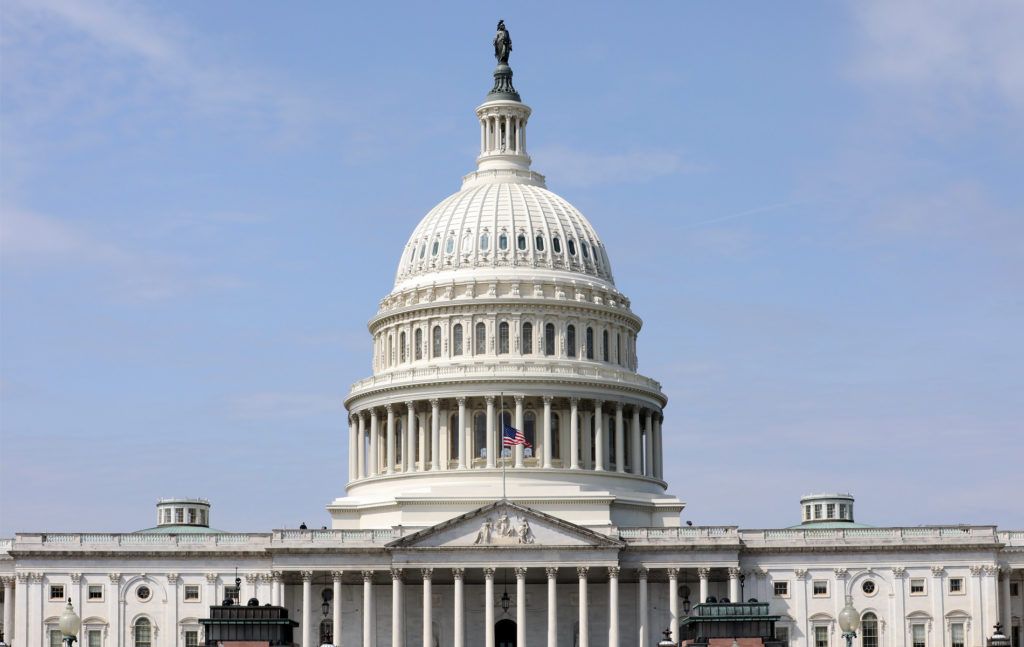
WASHINGTON (BP)—The Southern Baptist Ethics & Religious Liberty Commission has urged congressional leaders to include pro-life and conscience protections in all spending legislation now under consideration.
In a Nov. 18 letter, ERLC President Brent Leatherwood encouraged both Democratic and Republican leaders in the Senate and House of Representatives to guarantee long-standing, pro-life “riders” that prohibit federal funding of abortion and prevent violations of conscience rights are included in the final versions of appropriations bills. He also called for Congress to protect the religious freedom of faith-based, social-service providers.
A 14-page explanation of the ERLC’s concerns regarding the spending measures for the 2023 fiscal year accompanied Leatherwood’s letter.
The current spending bills in both houses strip “important pro-life protections, actions that are unacceptable in the minds of countless constituents who do not want a dime of their resources supporting the abortion industry in any way, shape, or form,” Leatherwood told the congressional leaders in his letter.
He cited a resolution adopted by messengers to the SBC’s 2021 meeting that called for the retention of all pro-life riders in spending bills.
“These amendments save lives and protect American consciences,” Leatherwood wrote. He also urged Congress “to remove harmful provisions that would exclude people of faith from serving the most vulnerable.”
He said such a step “would be an act of courageous leadership that recognizes our great experiment as a democratic republic is strongest when we respect one another in the midst of our disagreements. Such an act of across-the-aisle policymaking is desperately needed.”
Hannah Daniel, the ERLC’s policy manager, told Baptist Press, “The removal of decades-long, historically bipartisan life and conscience protection riders, such as the Hyde Amendment, from both the House and Senate appropriations bills is an unacceptable move by congressional Democrats.
“If Congress passes these bills without changes, countless preborn lives will be lost and the consciences of millions of American taxpayers will be violated,” she said in emailed comments. “The ERLC is actively advocating for the inclusion of these riders to ensure no funding goes to support the predatory abortion industry.”
The current spending bills reflect another effort by Democratic leaders to eliminate from the new budget the Hyde Amendment and other pro-life riders, which must be approved each year in spending bills. The Hyde Amendment – the best known of the pro-life riders — has barred federal funds in Medicaid and other programs from paying for abortions in every year since 1976. It has saved the lives of an estimated 2½ million preborn children.
Last year, the Democratic-controlled House approved spending measures without Hyde and other pro-life protections. Spending proposals offered by the Senate’s Democratic leadership also excluded the policies. In addition, President Biden’s budget proposal failed to include the abortion-funding bans.
Congress was unable to pass a final budget for the 2022 fiscal year without the pro-life riders, and Biden finally signed into law an omnibus bill in March of this year that included the protections.
In addition to Hyde, the other pro-life riders the ERLC urged congressional leaders to approve in final spending legislation include the:
— Weldon Amendment, which has barred since 2004 funding for government programs that discriminate against health-care individuals or institutions that object to abortion.
— Helms Amendment, a rider first approved in 1973 prohibits foreign aid funds from being used for abortion as a method of family planning.
— Dornan Amendment, which was first adopted in 1988 and has barred in most of the years since federal and congressionally approved local funds from paying for abortions in the District of Columbia.
— Smith Amendment, which has barred in nearly every year since 1984 federal employee health plans from paying for abortions.
In its 14-page explanation of concerns, the ERLC also objected to provisions that weaken or ignore the Kemp-Kasten Amendment, a 1985 measure that bans overseas family planning money from going to any organization that is involved in a program of forced abortion or sterilization.
In addition, the commission protested a prohibition on reinstituting the Mexico City Policy, first instituted by President Reagan in 1984. Biden rescinded the policy, which bars organizations from receiving federal funds unless they agree not to perform or promote abortions internationally.
The ERLC also opposed a ban on funds from the Department of Health and Human Services for faith-based organizations, such as adoption and foster-care agencies, that decline to provide services to same-sex couples based on their religious convictions.
Among other concerns raised by the ERLC are the:
— Funding of additional research “promoting further adoption” of the lesbian, gay, bisexual, transgender and queer agenda.
— Mandate under the Title X family planning program that recipients offer abortion counseling and referrals.
— Requirement of federal prisons to transport pregnant inmates to abortion clinics.
Leatherwood’s letter and the document compiled by ERLC staff also went to the Democratic and GOP leadership of the Appropriations Committee in each chamber.
















